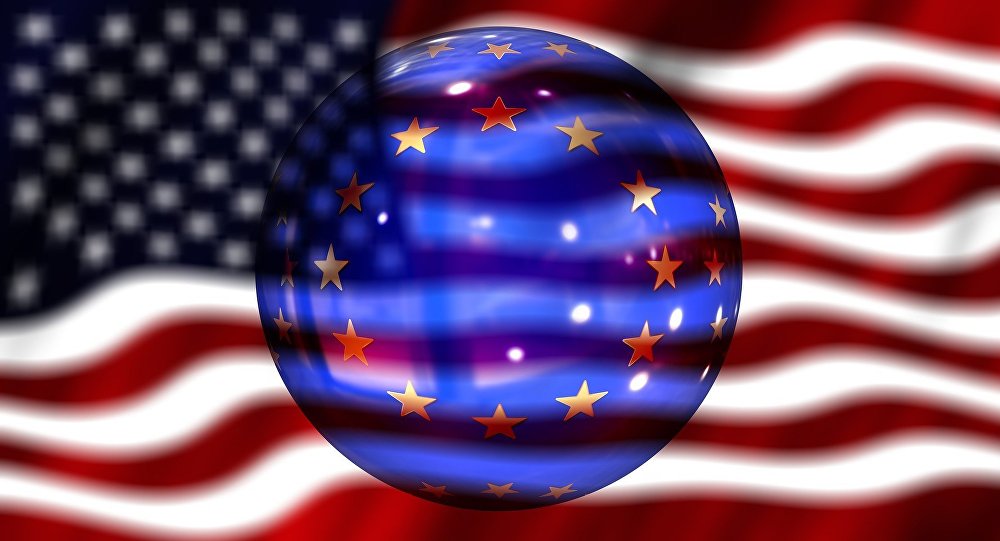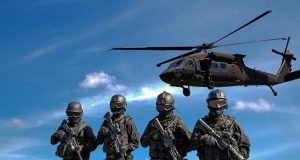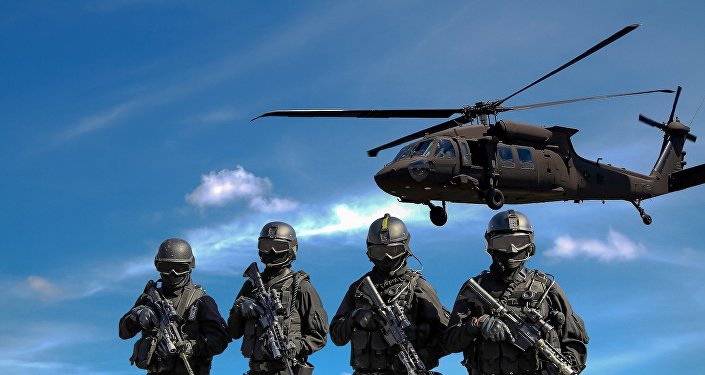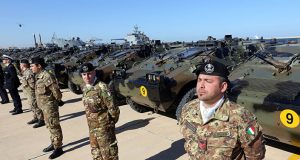More than half of respondents in six European countries believe that Europe needs NATO and the United States to defend itself, according to a new poll conducted by IFop Research Company. Radio Sputnik discussed the issue with Robert Oulds, political analyst and director of a London-based independent think tank, the Bruges Group.
Robert Oulds said that Europe is not in a situation where it can afford war and confrontation, so the growing militarization of the European Union is a serious concern.
“Members of the ruling political class and the governments seem to be separate from the population and the military forces are not entirely under popular control. The 2003 invasion of Iraq happened against the best wishes of many people, but it still went ahead. We need more democratic reforms in the UK and to make sure that the ruling class is more responsive to what the public wants,” Robert Oulds said.
Speaking about nuclear weapons being a major deterrent to war, he said that many countries want to get rid of nuclear weapons, but not unilaterally.
“In France, for example, they are very opposed to getting rid of their nuclear weapons, which they see as very important to their status. Britain too wants to preserve its independent nuclear deterrent,” he added.
The constant presence of NATO troops in Europe and, especially, their buildup, and the talk in the media about the perceived Russian threat has apparently influenced the Europeans’ wish to remain under NATO and US protection.
When asked if the results of the IFop poll could have been different should NATO members take an alternative stand and say that they no longer needed NATO to defend them, Robert Oulds said that it was unlikely that NATO would dissolve, especially now that its generals say they expect an escalation of tensions with Russia and areas around Kaliningrad and along the Polish border are being heavily militarized.
“We need to make sure that things do not escalate any further because there is a potential there for the conflict to increase, which is something very few people would like to see happening and are getting very nervous about this situation,” Oulds warned.
He added that US President Donald Trump wants to have the European NATO-members to pay their fair share of two percent of GDP towards defense and to re-orientate NATO to fight radical Islamist groups operating in Syria and around the world.
“That would be a change of focus on the more immediate threat. However, nothing would threaten NATO more and, simultaneously increase tensions in Europe, than the creation of a European army that would take resources away from NATO and undermine the alliance, which many believe has been successful in defending Europe, keeping the peace and not being overly aggressive.”
He warned about the danger of giving a military force to “an organization that wants to expand the border of the European Union is quite dangerous because it could be used to crush internal dissent, put ideology above the people’s interest and make sure that EU’s foreign police is enforced and is taken seriously.”
“I think that ultimately, this is a bigger threat both to the people in Europe and beyond. We need to stop the European Union developing its own military capabilities, because it is reckless, dangerous and has no regard for the democratic will of the people. We don’t want the European leadership to have control of the military,” Robert Oulds emphasized.
The findings of the IFop poll, show that 65 percent of those surveyed in Poland and Italy thought that the European Union needed the help of Washington and NATO. The same sentiment was shared by the majority of respondents in Germany, Spain, France and the UK.
Among US respondents, less than a half thought Europe would not be able to defend itself if needed.
The findings come amid mixed messages coming from US President Donald Trump concerning NATO.
During his presidential campaign the US leader said he might review Washington’s attitude towards the alliance. However, in his Saturday’s talk with French President Francois Hollande Trump reaffirmed the US commitment to the bloc, but also stressed the importance of cost sharing.



